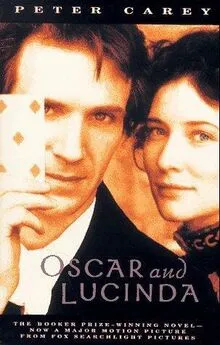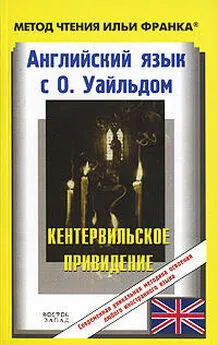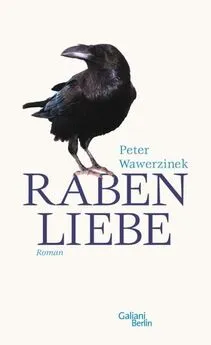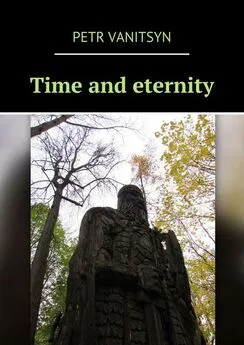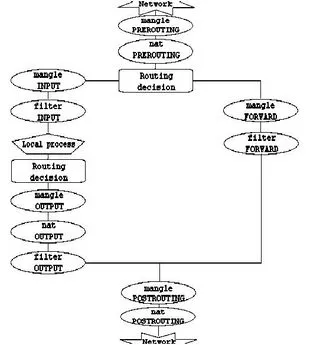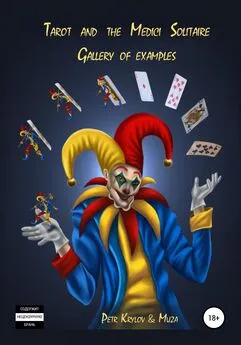Peter Carey - Oscar and Lucinda
- Название:Oscar and Lucinda
- Автор:
- Жанр:
- Издательство:Vintage Books
- Год:1988
- Город:New York
- ISBN:0-679-77750-4
- Рейтинг:
- Избранное:Добавить в избранное
-
Отзывы:
-
Ваша оценка:
Peter Carey - Oscar and Lucinda краткое содержание
The Booker Prize-winning novel-now a major motion picture from Fox Searchlight Pictures.
This sweeping, irrepressibly inventive novel, is a romance, but a romance of the sort that could only take place in nineteenth-century Australia. For only on that sprawling continent-a haven for misfits of both the animal and human kingdoms-could a nervous Anglican minister who gambles on the instructions of the Divine become allied with a teenaged heiress who buys a glassworks to help liberate her sex. And only the prodigious imagination of Peter Carey could implicate Oscar and Lucinda in a narrative of love and commerce, religion and colonialism, that culminates in a half-mad expedition to transport a glass church across the Outback.
Oscar and Lucinda - читать онлайн бесплатно полную версию (весь текст целиком)
Интервал:
Закладка:
"You have probably heard about the butchering habits of the northern blacks," said Mr Jeffris. They had. They did not raise any more eyebrows. Mr Jeffris had their complete attention.
"This is the direct result," said Mr Jeffris, "of rushing. They are incompetents. They go straight through the centre of the niggers' kingdoms. It is like thrusting your bare hand into a beehive and it gets them hopping mad, ma'am, whereas if you took your time, as I should, and went around the boundaries," his whole demeanour changed; you could see his shoulders loosen; his hands soften, "why, as you can imagine, Jacky-Jacky would be pleased to let you be." The woman was alert and thoughtful. She asked: "Who knows these boundaries?" He answered: "I do."
He liked that. An answer like a pistol shot.
It was a lie. He had read some thoughts on the matter in the journals of Mrs Burrows's late husband (not a clever man) who had spent his last months like a chap rolling amongst beehives with a blazing torch. Mr Jeffris took these musings (you could not call them theories) and developed them as he spoke. He did not think that he was lying. Neither, had he paused to see what he was doing, would he have denied it to himself. He would now say anything which would result in him being put in charge of this expedition. He would write such journals as the colony had never seen. Every peak and saddle surveyed to its precise altitude. Each saw-tooth range exquisitely rendered. His
349
Oscar and Lucinda
prose would have a spine of steel and descriptions as delicate as violet petals, Mr Jeffris was a coster's son and although he now despised salesmen he had a salesman's skills and he spoke to Lucinda directly and often, not because he valued the opinions of women (he did not) but because he saw that this one was at least as important as Mr Smudge in deciding whether or not his lovely journals should e'er be born. He did not flirt because he saw this would not be welcome, but if it had been welcome, then he would have flirted without Oscar being aware of it.
Lucinda opened the bottle of claret she had intended for their lunch. And when Mr Jeffris finally departed, sometime in the early hours of Boxing Day, she and Oscar sat at the table in the garden and-midst the heavy perfume of the citronella which they rubbed on their faces and arms to keep away mosquitoes-ate cold dry turkey and drank strong black tea.
They said nothing to each other about the incident on the landing. Yet they thought of little else and all their tender feelings, their shyness, embarrassment, hurt, their edgy, anxious, sometimes angry love, were like loose flecks of precious thread caught in the warp of a sturdy carpet, incorporated in that conversation which concluded with them wondering if it might be (a) possible and (b) ethical to persuade Mr Jeffris to take a leave of absence from Mr d'Abbs so he might lead the expedition to Boat Harbour.
87
Gratitude
Long, scythed sweeps of sunshine ran across the carpet, cutting through dull olive and leaving it a mown and brilliant green. Mr d'Abbs sat with his mustard-checked knees in sunshine, his face in shadow. It was difficult to see his expression, but his voice, no matter what
•«n
Gratitude
private outrage he might feel about the theft of his head clerk, revealed only his own great satisfaction with himself, and if he was put out by these uninvited visitors, he did not show it. Lucinda sat on the edge of what was normally "Mrs Burrows's chair" facing Mr d'Abbs. She rolled open the plans, but they were not inclined to stay open and so Oscar held one edge for her. The plans were beautiful. Oscar was surprised that anything so light and fanciful had come from the gold-ringed hand of Mr d'Abbs. Fine graphite lines, soft crinkly yellow tissue paper-it was as though he held the map of a thought between thumb and forefinger.
"Mr d'Abbs," said Lucinda, "this plan has taken you eight weeks." Oscar thought: She is already doing that which, not half an hour before, she has sworn she will not do. She has not even complimented him.
Mr d'Abbs stiffened slightly. He crossed his legs. He had dainty feet and slender ankles. "Rome," he said, "was not built in a day."
Oscar crossed his legs too, in sympathy. His right knee clicked. He worried about his knees. Soon he would have to walk beside the wagons Mr Jeffris was commissioning. He would have to walk day after day, week after week. It was for this reason that he soaked his feet in methylated spirits every night and why, by day, he wore these extraordinary boots which caused his feet such pain.
"And what size sheet have you planned for?" asked Lucinda. She smiled, but she was not an actress and her cheeks-as they always did when she was unhappy-seemed to disappear; the smile was as bleak as a cipher scratched on the wall of a house.
"Oh," Mr d'Abbs's rings fluttered through the sunshine, retreated into shadow) "oh, 111 leave that to your discretion."
"But, Mr d'Abbs," she pronounced it Mis-ter, "I specified a particular sheet size." Oscar watched with alarm as Lucinda tried to hold her anger in its place. Her sinuses seemed to swell visibly. Her nostrils flared. Her hands were leaving damp stains on the crinkly yellow paper. She said: "That is the whole point."
"Your point." Mr d'Abbs uncrossed his legs and then crossed them the other way.
"My point, yes."
"But not my point."
"It is my life that is involved here, and yours only to the most limited extent. Your point, with respect, Mr d'Abbs, does not matter."
"There is no respect in that at all, Miss Leplastrier, and simply
«I
Oscar and Lucinda
saying 'with respect' does not put it there."
There was an alarming silence. Oscar could hear Lucinda breathing. He was afraid she did herself no credit with this behaviour and, in truth, he did not understand why she should be so very angry. It was a fanciful church, he saw that, and perhaps a little pagan, but that, surely, was not the root of the problem. He prayed: Dear Lord, grant her patience, and charity. But all Lucinda could see was an irreligious nightmare, a bloated monument to ignorance and tastelessness-curved canopies, Moorish screens, Tudor gables, Japanese "effects." It was a monster, too-one hundred feet across.
"An artist," Mr d'Abbs was saying, "cannot be constrained by blacksmiths."
"But, Mr d'Abbs, don't you see-you have taken eight weeks and I cannot build what you have drawn."
"Miss Leplastrier," (Mr d'Abbs's voice had a tremor in it) "eight weeks is nothing." He stepped into the full glare of morning sunshine. His eyes were baleful. His chin was quivering. The hands that had begun by gesturing so freely were now clasped tight, one manacled to the other behind his back. He sat down. He looked around the walls at all his crowded landscapes. He smiled. His eyes pleaded. "Eight weeks is nothing for a building that will last a century." As Mr d'Abbs spoke and as Lucinda looked at this tawdry church she began to suffer a tight, airless feeling in her chest. The fact that the object of their bet was now made to appear at once so vain and mediocre and that it was, in any case, impossible to build, conspired to act as a catalyst in Lucinda's soul, to make a focus for all the vague unease she harboured about the bet, and fearful thoughts which she had hitherto managed to keep submerged, now bubbled up like marsh gas and burst, malodourous, in the very forefront of her conscious mind. The tight band across her chest was a not unfamiliar feeling. It normally came on her after a night spent at the gaming tables. It was a panic produced by the fear of throwing away her fortune. She pressed her forearms against her abdomen. She looked to Oscar, wishing only that he would dispel her panic with a smile.
Oscar uncrossed his leg. His knee clicked again. He folded his arms which were sore as a result of Mr Jeffris's recommended dumb-bell exercises.
Mr d'Abbs leaned forward. He rubbed at the yellow paper as if he were a salesman in a Manchester department and the plans were fabric he had set his mind on selling. "You may not see the work in this plan."
Gratitude
"Oh," Lucinda sighed, "I see it, Mr d'Abbs, I really do." However she was not looking at Mr d'Abbs, but at the green-eyed man she had allowed herself to believe might love her. She could not see this man. She saw another, a queer stranger who rubbed his hands together like a praying mantis. She had made a bet with him and that was all. You could claim that it was code for a betrothal, a token of love, but not if you were sane. It was a bet, and only a mad woman would imagine anything else.
"With respect, Miss-you cannot see it. It is not here, but in all the scraps of paper, all the scribblings, the full-drawn plans that were flawed. I have been up early in the mornings. I have talked to my many artistic friends. I have pursued this most diligently, Miss Leplastrier, and not to make money."
"I am most appreciative," Lucinda said.
"You are not appreciative." His voice rose and the tremble could not be ignored. Oscar saw how the brown eyes pleaded, even while they closed down with anger. "I tender no fee, merely the pleasure of doing the job well for you because I care for matters of the spirit. ." A small vertical frown mark appeared on Lucinda's high forehead.
". . more than most men in this town. As you know, as you know. And I take it," his voice rose even more as a flock of white cockatoos rose shrieking from the Moreton Bay fig beside the window, "I take it most uncivilized to be hectored on account of it. Do you see my bill attached?" (Oscar crossed his leg again.) "Do you see an account of my worry? Or my hours?
Who protected your interests when you arrived in Sydney? You were lucky you were not robbed blind in daylight. Who invited you into his home, and provided you with friends? Here, in this room. How often you thanked me."
"Please," said Oscar, who could not bear the little man's pain. "Please, Mr d'Abbs…"
"You will hold your tongue, sir," said Mr d'Abbs, rising suddenly to his feet. He began to stride around the room picking up leatherbound volumes and banging them together. They.gave off a smell like old bacon fat. There seemed to be no sense in the action except the exercise of anger.
"I took you in when nobody would touch you. You were not a clerk's bootlace, sir. You were a smudge. A disgraceful, cast-out little smudge. You ruined my journals. I will always be able to look at the pages and remember your untidy habits. So do not," he shrieked, "presume to tell me how to draw a plan."
"I was not," said Oscar.
"Then do not," said Mr d'Abbs, quiet again. He took a breath and
Oscar and Lucinda
then expelled it. He turned to Lucinda, speaking to her even while he continued to pick up the books which last night's party had left abandoned on sideboard, sofa, table, ottoman. "I have not the skill to draw in perspective, miss, and I am not the only architect with this disability. Greenway-so Mr Fig informs me-was the same. But I have commissioned Mr Hill, from my own pocket" (by now he had half a dozen volumes clasped to his chest) "from my own pocket, to provide the perspective you have in front of you. You will see it is signed" (it was an untidy nest of books he held, quite unstable) "and if you do not like it" (a thick brown volume dropped and he kicked it-thwackagainst the skirting board) "if you do not like it, you may take it to Lawson's and sell it for ten guineas."
Читать дальшеИнтервал:
Закладка:
